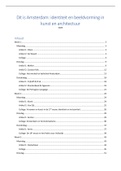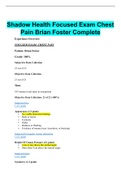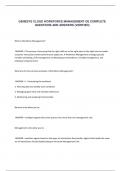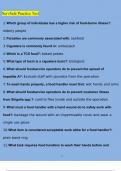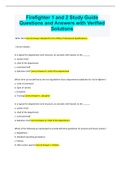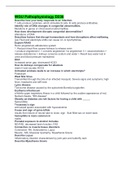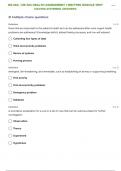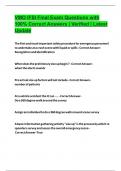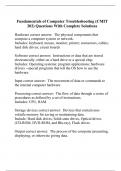Exam (elaborations)
NURS 623 Exam 4 Comprehensive Exam Questions with complete Solutions, Graded 100%
- Course
- Institution
NURS 623 Exam 4 Comprehensive Exam Questions with complete Solutions, Graded 100%-1. One of the initial steps in assessing patients with musculoskeletal complaints is to determine whether the complaint is articular or nonarticular in origin. Which of the following is an example of an articular stru...
[Show more]




